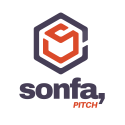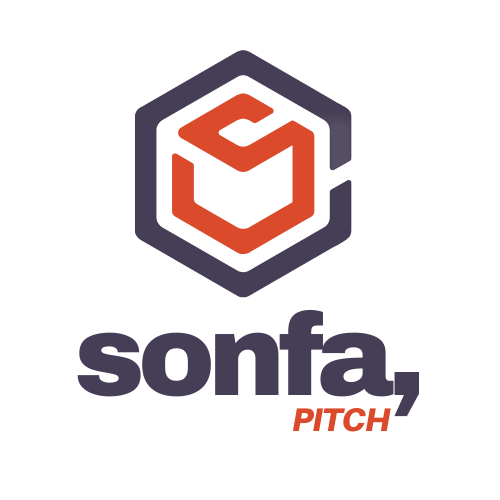Omar+ has only just released his debut EP, Open Your Eyes, but his audience has been locked in for several years. The London producer, DJ and vocalist has almost two million monthly listeners on Spotify alone, with his 2025 track, Back It Up (made in collaboration with fellow rising star, Josh Baker), sitting comfortably at 20 million streams. His social media accounts tell the same story, with millions of likes on his TikTok and Instagram videos. Such online metrics are impressive, for sure, but the young artist is making waves in the real world, too, with a packed performance at Reading and Leeds festival, a sold-out headline show in London, and a show at Eden Ibiza under his belt. The allure? A buoyant blend of house and R&B that brims with catchy hooks and channels those euphoric moments so sought after in modern dance culture.
In this outing of Studio Files, the Londoner explains why he prefers his home space over established studios, why he’s got an appetite for some analogue gear, and why he thinks the idea of mixing and mastering is “blown out of proportion.”
Omar+! Congrats on your debut EP, Open Your Eyes! How different was the process of creating an EP on your own, compared to your previous releases?
I would say the time that went into it, to be honest. They weren’t quick turnarounds like with other tunes I’ve written. I spent a lot more time delving into music I was really into and how I could recreate those sounds. I was more specific and nitpicked very detailed sonics that I wanted to create in those songs to try and nail the perfect representation of my music taste. It was just much more of an intricate process.
You’ve garnered a decent following and buzz so far, mostly with unreleased tracks —is there a strategy you’re following?
Nah [laughs]. I think it probably looks like that now, especially with how this year’s gone so far — like there’s this formula I’ve kind of cracked — but it’s just happened completely naturally.
You’ve worked on some records with other acclaimed UK artists lately, like Piri and Josh Baker. What have you picked up from those collaborations that has helped you in your own solo work?
I’ve just been able to see so many different people’s workflows, which has kind of inspired my own. In a broader sense, every artist I’ve worked with is really talented in their own right, and it’s just inspiring to be surrounded by them.

Tell us a bit about your studio.
My studio is very stripped back. It’s literally just a bedroom studio, and that’s the way I like it. I learned last year by going to professional high-grade studios, that it’s actually not where I feel comfortable making music. A lot of the time, I feel most comfortable when I’m just in my own space. I don’t need really expensive equipment or anything like that. As long as I’ve got a laptop, a mic, my monitors and a decent interface, that’s all I need.
What’s been the biggest investment in your studio?
I guess just as a whole, all the plugins I have… I’m sure that’d probably be quite a large investment. I haven’t bought everything at once; it’s been gradual over time. But yeah, I guess plugins, because the more plugins you have, the more sounds you have, and it just constantly opens up new possibilities for your music. Sometimes you can get stuck in a writer’s block if you’re using the same sounds over and over again. So I think it’s a great idea to keep updating your plugins and having new synths to work with, purely because they can spark new ideas.

There’s a lot of old-school influence in the sound palette of Open Your Eyes — how did you tap into those sounds? Were there certain instruments or synths you relied on?
Yeah, definitely. Open Your Eyes has the most 90s house influence that I’ve managed to work into a track. And that just came from, I mean, obviously listening to music from that era and being in places where I’d be hearing classic house. That was definitely the track I spent the most time on in terms of trying to recreate those sounds, but it was all just about the sound design. I want to say I used Omnisphere, because it has the Juno and Prophet recreations on there, and the specific track that inspired that synth was Groove La Chord.
Your music blends a lot of tech-house & R&B sounds; what do you think is the common thread between these two genres?
The common thread is the ambience. House music and R&B are very ambient genres to me. A lot of the time, the best house or R&B songs are actually quite simple, but the production or the vocals create a constant feeling and a vibe throughout the song. They’re actually quite similar … to my ears anyway!

How do you see your sound and studio evolving in the next two years?
I think it’s time to start investing in physical hardware and gear. That’s definitely kind of the next step I want to take to really build and define my sound. In terms of studio space, I do kind of want to keep it at home. I mean, maybe at some point I’ll need to rent out a studio somewhere, but right now I really feel comfortable making music at home. I don’t really want to take it anywhere else.
What’s a music production myth you think needs debunking?
I think the importance of mixing and mastering might be blown out of proportion. People will disagree with me, but I actually don’t think the best tracks have the cleanest, sharpest mix and master. I actually think if you have a basic understanding of it yourself, some of my favourite songs aren’t mixed that well, but they just have this sound, which just feels fresh from the producer, fresh from the home studio. I actually really like that; it gives a track more character.
Before you go, what can you tell us about the story and process behind your track Make Believe with Luke Dean?
Luke sent me the instrumental, and I was sitting with it for a while. I didn’t get back to him straight away, and then I remember I was playing it on my phone in the shower and I just started singing along. A lot of the time, I have the best ideas in the shower because my mind just wanders. I was literally just singing along to it, and a lot of the lyrics and melodies that you hear on the track now were born in that moment. I was just singing them. I jumped out of the shower, set up, jumped on Pro Tools and laid down the majority of the track just like that. It all came about really quickly.
Sam is the Commissioning Editor at MusicTech, where he’s helped shape the publication’s editorial voice since 2019. With nearly two decades of music-making and a degree in music technology behind him, his focus is on the stories behind studio gear and the artists who use it. He’s spent way too much time sampling disco records.
Get the MusicTech newsletter
Get the latest news, reviews and tutorials to your inbox.






